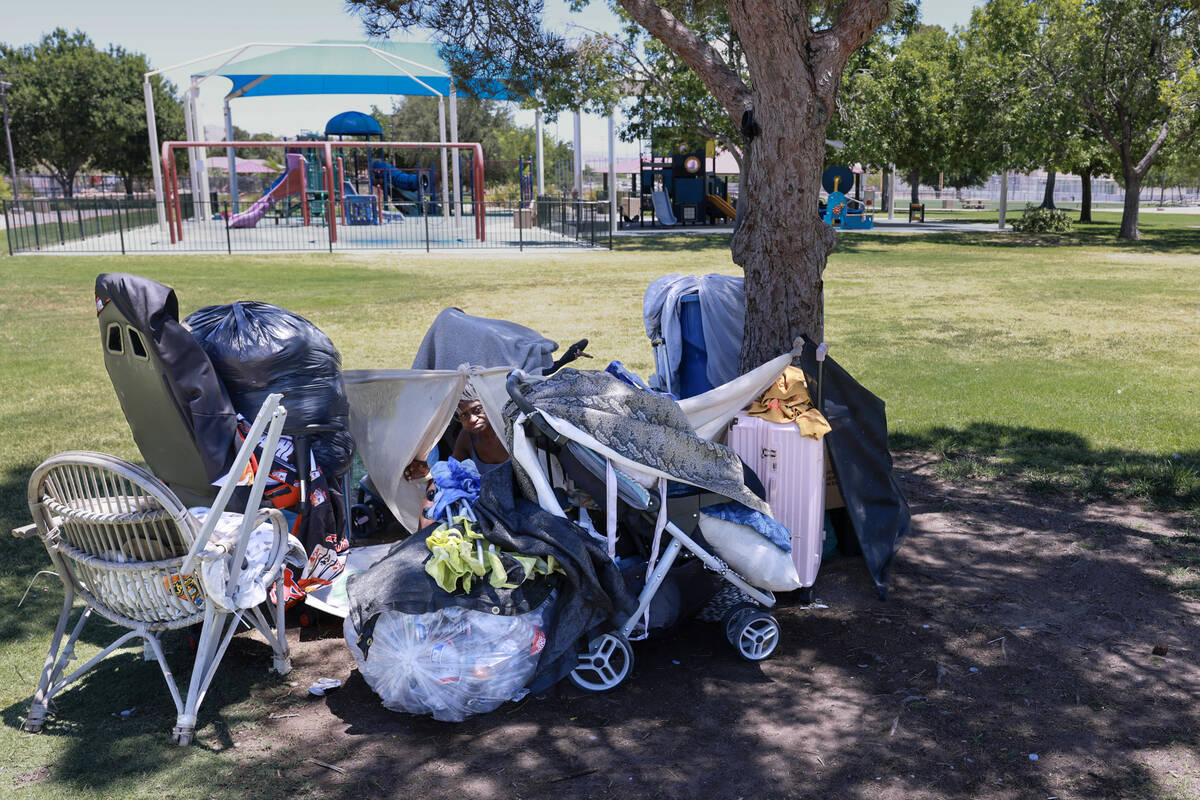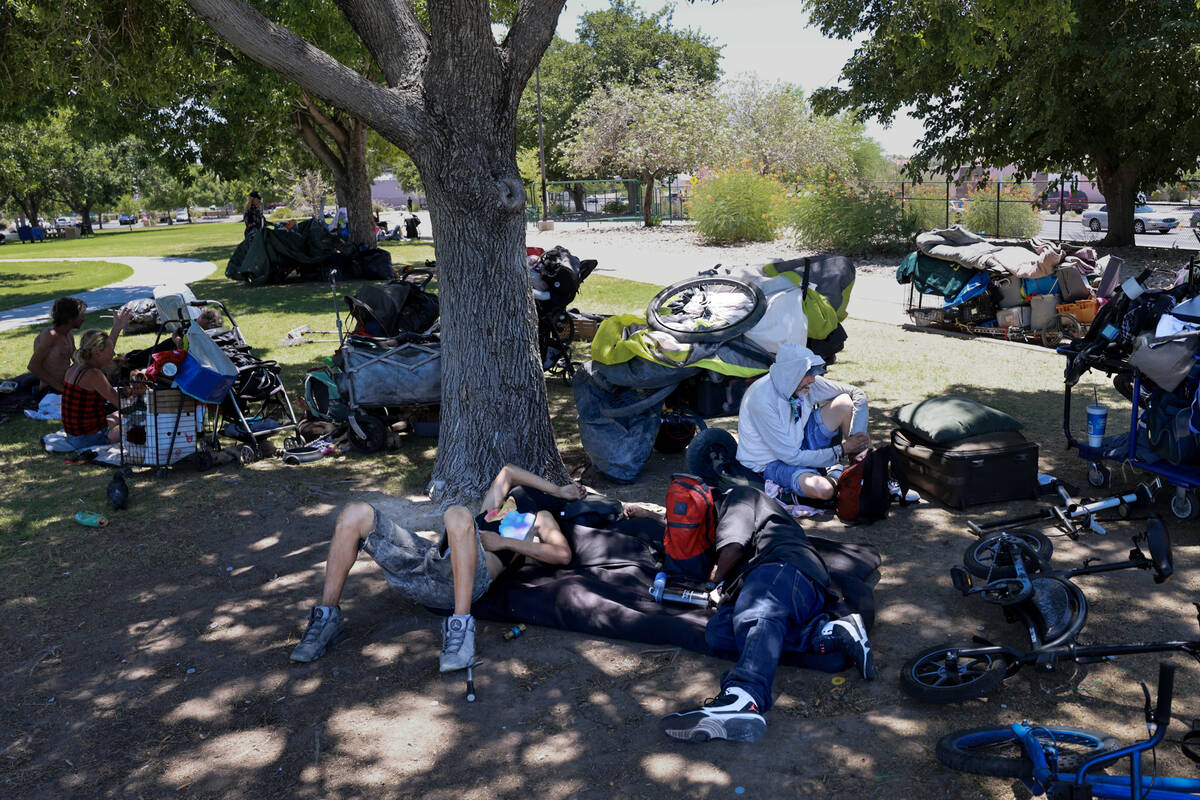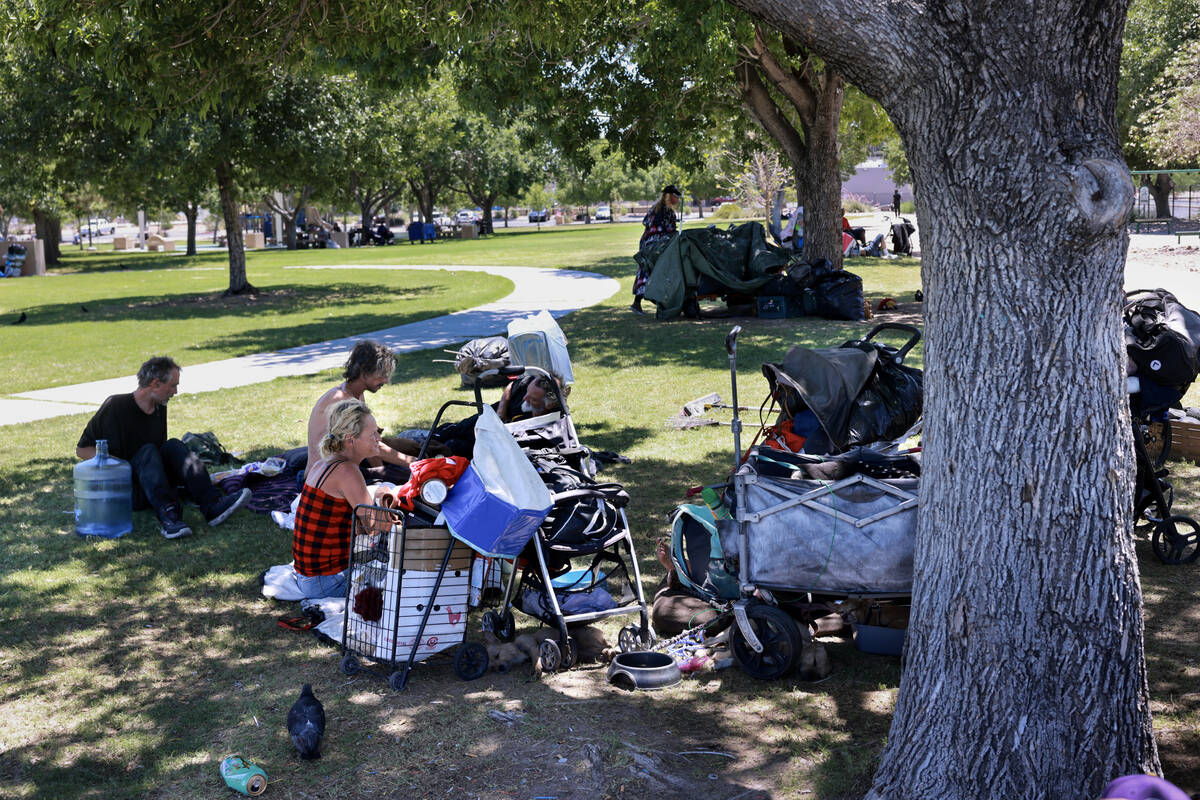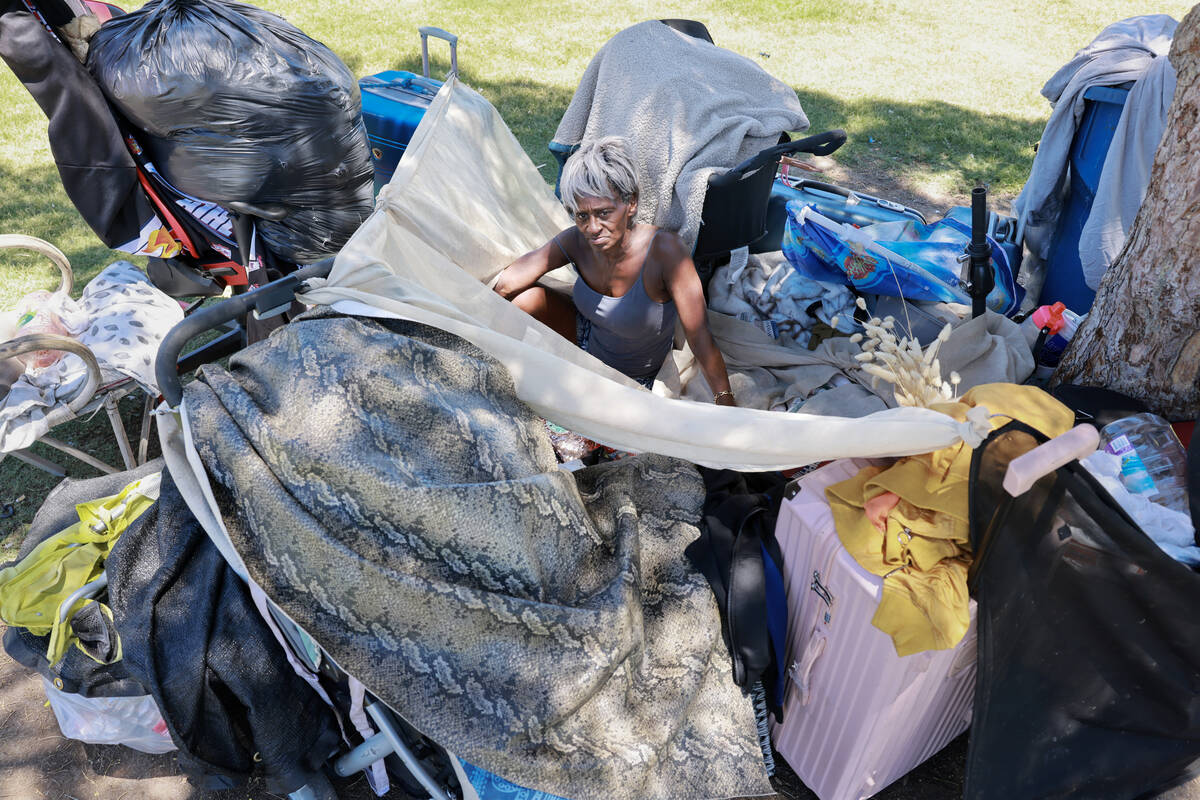Homeless camping bans like those in Las Vegas, Henderson get Supreme Court’s OK
Camping bans that U.S. cities have instituted to clear homeless people from public spaces are constitutional, even when there’s no shelter space available, the Supreme Court ruled Friday.
The 6-3 decision reinforces the legality of limited camping ordinances already in place in Las Vegas and Henderson.
The local ordinances grant city marshals and police officers the power to jail people illegally camping if they refuse to move, so long as there’s shelter space available.
The cities had signed onto an amicus brief seeking clarity from the Supreme Court after a lower court ruled that such laws amounted to cruel and unusual punishment when shelter space was lacking.
The case originated in Grants Pass, Oregon, where officials appealed a ruling that struck down ordinances that fined people found sleeping outdoors. Since 2018, the 9th Circuit of Appeals held that such bans were unconstitutional in places with not enough shelter beds.
It wasn’t immediately clear if Las Vegas and Henderson intend to strengthen their ordinances. Spokespersons for the cities could not immediately be reached for comment Friday.
“(Henderson) believes that restoring the City’s full powers to address the homeless crisis does not hinder our growing efforts to provide housing and resources,” a city spokesperson wrote in the fall. “Overturning these cases allows for flexibility in addressing unhoused issues as they emerge.”
Las Vegas Councilwoman Victoria Seaman, who is running for mayor, told the Las Vegas Review-Journal she supports the Supreme Court ruling.
“This decision will allow the City of Las Vegas to continue implementing our camping ban, whose passage I supported in 2019,” she wrote in a statement. “This policy safeguards property rights and is critical in connecting individuals with the wrap-around services needed to transform their lives.”
Seaman added: “I remain dedicated to advocating for sensible and compassionate solutions to our city’s homelessness crisis.”
Councilman Brian Knudsen, who voted against the ordinance, said Friday he wasn’t sure the high court decision would have an impact on the already-existing Las Vegas ordinance. He has also said that police shouldn’t singlehandedly be tasked with combating homelessness.
Advocates criticize decision
Critics have argued that the bans criminalize the afflicted population.
Washoe County, Sparks and Reno have implemented camping ordinances, while Clark County doesn’t have one.
The American Civil Liberties Union of Nevada said that the majority’s opinion was limited in scope and only addressed the question about civil penalties and not criminal offenses.
“We are now reviewing camping ordinances statewide in relation to this decision, which have primarily went unenforced,” the ACLU wrote in a statement. “Local governments forcing police officers to enforce criminal laws against people simply because those people are poor — which is how local governments throughout Nevada’s ordinances actually read despite lip service to the contrary — is a disgrace.”
The Nevada Housing Justice Alliance released statements from a coalition of grassroots advocates who chastised the ruling.
“This decision reaffirms these ordinances that unfairly target and criminalize low income, unsheltered folks,” the organization said. “The NHJA urges local elected leaders to respond to the decision and on-going housing crisis by providing comprehensive services and addressing root causes such as housing unaffordability and weak tenant protections.”
During a daylong point-in-time census in Clark County last year, volunteers tallied 6,566 unhoused locals, a 16 percent increase from the previous year, and the highest number since 2015. Homelessness in the U.S. grew 12 percent last year to the highest level on record.
“Pushing unhoused people to the edges of our cities is not what will solve homelessness,” wrote Shelbie Swartz, executive director of Battle Born Progress. “And yet, in today’s decision the Supreme Court chose cruelty and expedience over all else, granting carte blanche to local governments to harass unhoused people just for being unhoused.”
Laura Martin, executive director of the Progressive Leadership Alliance of Nevada, said that rent inflation has contributed to an increase of homelessness.
“No person deserves to be criminalized and fined for their income status,” Martin wrote, calling for reforming eviction processes and strengthening tenant protections. “Laws that criminalize a person for being unhoused are dehumanizing and don’t do anything to solve the unhoused crisis.”
Contact Ricardo Torres-Cortez at rtorres@reviewjournal.com. The Associated Press contributed to this report.

























